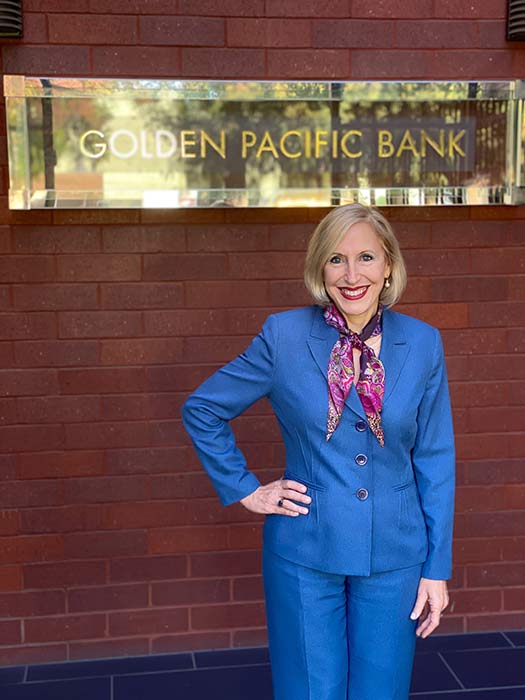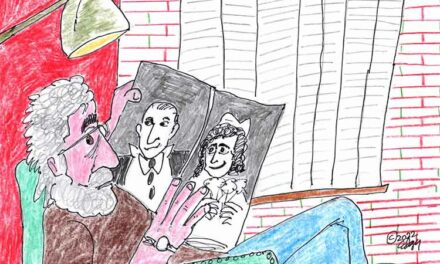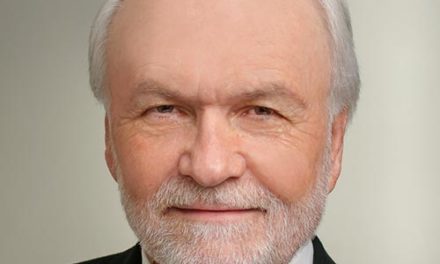Reaching A 52-Year Smilestone
Writing wrongs for five decades this month
By Ed Goldman
This month is my 52nd anniversary of being a professional writer. Please note that in this reference “professional” merely indicates I’ve been paid to do it; it’s not a self-lauding of the writing’s quality.
Fifty-two may seem like a curious number for me to have selected as a milestone. I probably should have mentioned my 50th anniversary in a June 2020 column but, frankly, forgot. I was busy avoiding COVID and, more to the point, thinking endlessly about it and when it would claim me.
1970
The latter number represents how close I got to being drafted during the Vietnam War, when eligible guys born on November 15 (as I was) were assigned the number 131 in the first Selective Service Administration’s lottery. That year, they stopped drafting young men like me (who’d dropped their student deferments) at number 125, and pretty much guaranteed that if we hadn’t been drafted by then, we wouldn’t be later on. More than five decades later, it continues to stand out as the rare moment I trusted the government.
But let me return to the number 52. Please stop interrupting. You’ll get your chance.
According to Google, “The number 52 isn’t necessarily a special one. It’s not a round number, like 10, 25, 50, or 100. It’s not considered a lucky number or an unlucky one. And if you’re a math geek, it’s not a prime number or special for any other reason.”
I disagree. Fifty-two is a fine number in and of itself. There are 52 weeks in a year. There are 52 cards in a poker deck. The website affinitynumerology.com reports that “The numerology number 52 is a number of introspection and expression of a personal sense of freedom. It is studious and is mentally sharp.” So there.
On the other hand, 52 is just a so-so number if “you are ruled by 7 or Ketu. Your overall life is decided by Him. He tends to delay your financial progress. He makes you fail in your love affairs.” (If you’ve just joined today’s column in progress, “The number 7 is ruled by the planet Neptune which is called Ketu in Hindu astronomy.” And I am in way over my head.)
2022
In June of 1970 I “won,” though don’t recall anyone else competing for it, an intern-scholarship to the Long Beach Independent, Press-Telegram. It was the metropolitan daily newspaper I’d dreamed of working for since touring its building as a fifth-grader. I was now a journalism student and editor of the school paper at Long Beach City College when my beloved advisor, Donald Roberge, recommended me for the gig.
I started out by reporting on everything from airplane crashes to sand-sculpting festivals, from domestic violence incidents to what you could still buy for a nickel in town (my favorite was a juicy hot dog at a stand inside a hardware store).
I interviewed a woman who’d started a low-fee employment agency to help ex-cons and other hardcases find jobs. It was so successful that a larger agency bought hers—and cruelly fired her on its first day of ownership. I was asked to do a story about her; and because the situation reeked with irony (my headline was “Woman Who Helped People Find Jobs Loses Her Own”), I felt that it practically wrote itself.
A few days after I turned it in and the article ran on the front page of the Metro Section, the paper’s assistant managing editor, a pipe-smoking gentleman named Bert Resnik, called me into the office of the managing editor, Larry Alison (who resembled a young Ted Turner), and said the paper was going to nominate my piece for a major award.
Having just turned 20 (I was hired at 19), I wasn’t yet used to newsroom repartee, and assumed my leg was being pulled out of its socket. But no.
Well, I didn’t win the award. I don’t think the nomination even picked up much traction outside the newspaper but that’s not what troubled me. I was suffering from a mild bout of what’s come to be known as Impostor Syndrome, that feeling that you’re not really as cool as others have said you are. I felt that the story I’d written would have been almost impossible to screw up. I was no journalist. I was more of an opportunist: I’d been handed something on a silver platter and simply didn’t drop it.
A few weeks later, a story I was sent to cover proved it. Two stepbrothers around 11 years old had been exploring a cave caused by nearby construction blasting in an embankment leading from the city’s Ocean Avenue to the beach about 30 feet below. Something had suddenly caused the boys’ sanctuary to cave in; they were killed.
The city editor, a fellow named Frank Anderson who never cared for me, told me to go to the emergency room where the boys had been brought and interview their mom/stepmom. I found her just outside the ER, sitting on a bench and frantically sobbing. She looked like she was, at the most, 30 years old. By this time I’d covered gory and inhumane things; but I just couldn’t bring myself to walk over to this young woman and ask how she felt, or something of equal banality.
I found a phone booth, called the editor and almost cried myself, telling him I must not be the newsman he and others thought I was. He said to wait there until another, very seasoned reporter could join me, then to go home. I said I’d understand if he wanted to fire me and he said, “Fire you? You’re one of the best feature writers we have. I wouldn’t be surprised a goddamned bit if someday you become a columnist.”
While I didn’t get along that well with Frank most of the time, I do wish he were still alive today to not be a goddamned bit surprised.
Ed Goldman's column appears almost every Monday, Wednesday and Friday. A former daily columnist for the Sacramento Business Journal, as well as monthly columnist for Sacramento Magazine and Comstock’s Business Magazine, he’s the author of five books, two plays and one musical (so far).
Yes, Virginia
A Weekly Blog by Virginia Varela
President, Golden Pacific Bank, a Division of SoFi Bank, Inc.
photo by Phoebe Verkouw
Even though I’ve been in (and loved) the banking industry for decades doesn’t mean I haven’t been aware of some of the terrible things people have said and written about it—and not just in the past few years. I’m talking about centuries.
I think every profession that has a major dominance in our lives endures these insults. Attorneys, journalists, physicians, people in law enforcement and, of course, entertainment stars all become targets for abuse at some point.
I want to share with you today some of the notable terrible things that have been said about my field and its practitioners. And then, a word of two praising us. Fair’s fair, after all.
The first is just a vanished cliche about “bankers’ hours,” which was a shortcut for saying someone had a short working day, “especially one that extends from 9 or 10 a.m. until 2 p.m., the hours during which banks were traditionally open to the public. “ As you know, those hours have not only expanded in the past 20 or 30 years but also, through the marvel of technical innovations such as the Internet, become a 24/7 activity.
Then there are the humorous observations, including E. Joseph Cossman’s remark that drive-in banks “were established so most of the cars today could see their real owners.” Cossman was an inventor, businessman, entrepreneur, author and toymaker.
And this from comedian Bill Maher: “My bank must stop trying to sell me identity theft protection. You know why I expect you to protect my money? Because you’re a bank.”
Okay, enough abuse! Here are three comments I wholeheartedly embrace:
1. “In banking or finance, trust is the only thing you have to sell, ” says Patrick Dixon, an author and genuine futurist.
2. “Good Banking is produced not by good laws, but by good bankers,” said Hartley Withers, a former editor of The Economist (which knows a thing or two about finance).
3. “At its core,” said Felix Rohatyn, the visionary banker who helped rescue no less than New York from bankruptcy, “banking is not simply about profit, but about personal relationships.” Amen.
sponsored content














